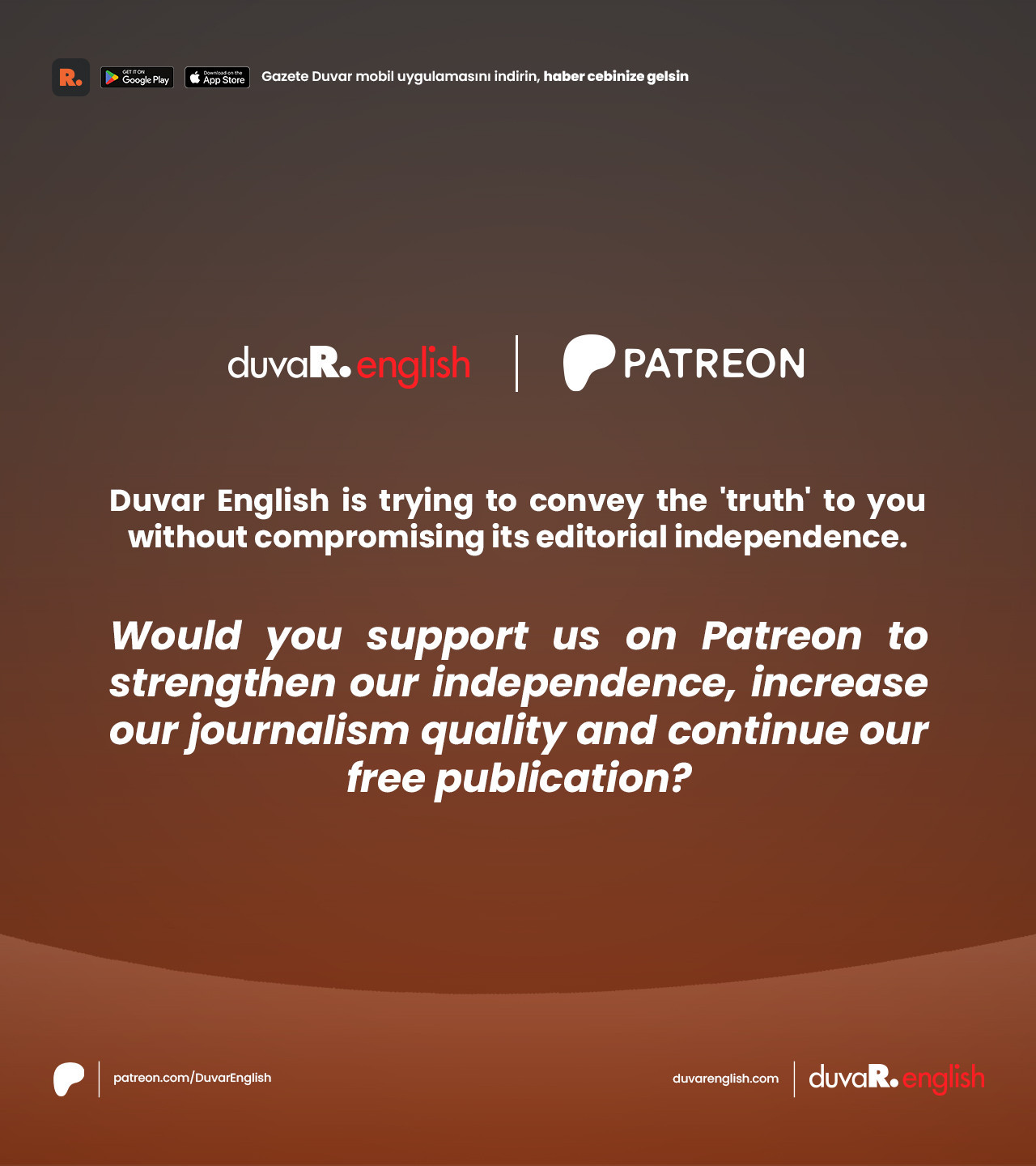DEM’s Ankara co-mayoral candidate Kışanak campaigns behind bars, says her candidacy cheered political prisoners
In an interview with Gazete Duvar, DEM Party’s Ankara co-mayoral candidate, jailed Gültan Kışanak said portraying the DEM Party as “an enemy” condemns the government and the opposition to radical nationalism.
Ceren Bayar / Gazete Duvar
The campaign team established for Gültan Kışanak, Peoples' Equality and Democracy (DEM) Party’s Ankara co-mayoral candidate, has been working intensively. Kışanak has also been working on the campaign with political prisoners in Kandıra Prison. The campaign team in the prison includes former co-party chairs, MPs, mayors, and party executives.
Kışanak, to whom we sent our questions through her lawyers, talked about the campaign they conducted in an F-type prison. She explained what she would have done if she had run her campaign outside and what kind of local administration the people of Ankara would face if she were elected.
Kışanak said that both the government and the opposition have surrendered to the radical right with their discourses and attitudes on the pro-Kurdish DEM Party.
Former co-mayor of the southeastern province of Diyarbakır, Gültan Kışanak, who has been in jail since her arrest in 2016, was sentenced in February 2019 to 14 years and three months in prison on charges of “being a member of” and “making propaganda” of the outlawed Kurdistan Workers Party (PKK).
Below are the questions asked by Gazete Duvar and Kışanak's answers:
As far as we know, your last Ankara visit - excluding the hearings - was at the invitation of the Parliamentary Coup Commission when you were co-mayor of Diyarbakır Metropolitan Municipality. After your statements at the Parliamentary Coup Commission, you were detained and arrested in Diyarbakır. And now you are a mayoral candidate for Ankara. How does this process make you feel?
The trial of Socrates has gone down in history. It is still at the center of the debate on “crime and punishment.” I don't remember the exact sentence, but Socrates' wife says the following: "You are not guilty of anything, why are they making you pay so much, I feel so sad." Socrates replies: "Don't be sad. Imagine if I were guilty."
Since the first day of my arrest, I have been in the comfort of Socrates. I wanted those who have been coup d'étatting the will of the people, those who have been plotting trials, those who have been trying to liquidate democratic politics, those who see women's struggle for freedom and equality as a crime... In short, I wanted those who are really guilty to think a bit.
Ankara has always been seen as the center of the oppressive face of the state, the center of power, and has not been on good terms with the opposition. My candidacy can also be seen as an attempt to introduce Ankara to the oppressed, to the others; in other words, to civilize Ankara a bit.
We would like to continue with your election campaign. In the letter you sent to women last week, you wrote that the women you were in prison with started campaign work under the leadership of Figen Yüksekdağ. What kind of a campaign is being carried out, who is on the team, and how is the process progressing?
Our campaign team is very colorful. Kurdish, Turkish, Karapapakhs, Balkan immigrant, from Afrin, Alevi, Sunni, Yazidi... Women with children, young women, older women like me who have increased their average age... Mayor, MP, party executive, journalist, student, worker, unemployed... The prison is a small example of the social structure outside. All the colors of women are here.
To be honest, we political prisoners were quite fed up with the elections. But when my candidacy for Ankara came up, it cheered everyone.
In the F-type prison, the system is based on isolation, we stay in cells of three. It is not so easy to communicate. But women's intelligence finds alternative ways of communication. Our campaign is entirely the product of women's labor, women's creativity, and collective both inside and outside. I think this is its value and secret.
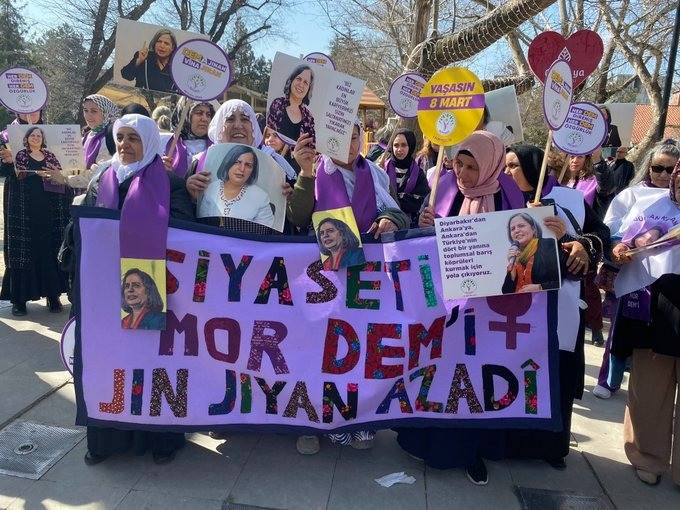
While you are behind bars, there are women outside working for your campaign. Not only women from your party but also women from many organizations and institutions are working for your campaign. How do you evaluate this situation?
First of all, I would like to thank all the women who participated in the campaign, made efforts, and shared their feelings, and I send my greetings and love. The most important reason for my candidacy was to build bridges of solidarity and common struggle among women. I see that this goal has been reciprocated and embraced by my sisters. We meet in common dreams with the women who participated in the campaign. Even though we are not physically side by side, our intellectual commonality overcomes all obstacles and turns into a struggle. I believe that the struggle of women will give hope to the society.
We women know from our experiences that women and the country in general have very serious problems. There is hardly a shred of democracy left, and war policies are fueling social traumas. Women's movements can and should lead the struggle for democracy and peace, and produce solution policies from a women's perspective. I believe that our election campaign will unleash a strong women's struggle and that this wave will continue after the election.
Is there anything you would have done if you were running the campaign outside?
Local politics has been squeezed into the shadow of general politics, where petty power calculations are made and promises are made in abundance. It is a pity... However, the cornerstone of democratic systems is local democracy. Local governance is the closest and most democratic area of government to the people.
If I were outside, I would try to run a campaign that would reveal the culture of democracy locally. For example, I would set up public lecterns in the squares. I would want to be instrumental in making the voices of women, young people, laborers, retired people, Alevis, disabled people, Kurds, Turks, etc., in short, everyone who has a problem, heard. I think that if the real subjects of politics take the field, we can pave the way for the solution of our problems. It would also be nice if we came together with 81 women from 81 provinces and announced a declaration that we, as women, will lead the politics of peace.
Your party's approach to local governments is different from all other parties in Turkey. Will this difference also be felt in Ankara? What kind of local government approach will Ankara residents face if you are elected? Will there be projects similar to the ones you implemented when you were co-mayor of Diyarbakır Metropolitan Municipality?
If the people elect me, Ankara will be introduced to democratic, publicist and women's municipalism. The doors of the municipality will be open to the public 24 hours a day. I will serve all the people of Ankara without discrimination. I will work to take Ankara out of the domination of the masculine system and make it a women's city.
The first thing the trustee mayor of Diyarbakır did in Diyarbakır was to dismantle the entire administrative structure of the women's organizations and close them down. As the first thing I will do in Ankara, I will establish a women's department and accelerate women's work. I will develop social policies that facilitate women's participation in the public sphere.
I will govern the municipality together with the people, women, youth, and all democratic dynamics of the city. We do not discriminate. We have democratic, participatory, transparent and accountable municipalism. Moreover, I will not give opportunity to rent-seekers...
You have asked such good questions that one feels like telling dozens of projects one after the other. I wish I was outside, but unfortunately, I am not. I limited my candidacy with the goal of "revealing the possibilities that will improve the struggle for democracy and peace." But I can say this; Ankara is among the cities lagging behind in terms of mission and vision. Ankara is the founding city of the Republic. It is necessary to bring the Republic together with democracy and Ankara with a democratic vision.
If I am elected co-mayor, one of the most important projects I will realize will be the "Institute for Equality Policies." In this institute, academic studies will be conducted to prevent all kinds of discrimination and equality policies will be developed. Ankara will have an important mission as a city that produces projects on this issue for other cities and even foreign countries.
Your two strongest rivals are two male politicians with nationalist identities (Mansur Yavaş and Turgut Altınok). Can you assess your rivals?
My opponents are promising the earth in their campaigns. One of them failed the nationalism test on television. The other keeps the nationalism trump card in his pocket as the key to the presidential election. No one talks about local democracy.
I am glad that the DEM Party nominated a candidate and the people of Ankara were not deprived of a democratic option.
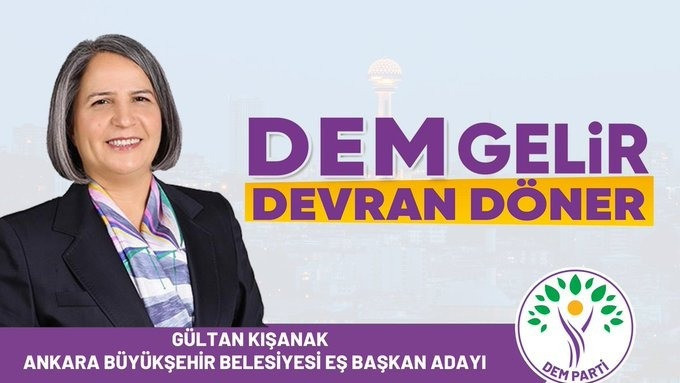
In your statement announcing your candidacy for Ankara mayorship, you said "We are setting out to build bridges of social peace across Turkey." How will your candidacy for Ankara contribute to building these bridges?
I see my candidacy as a starting point. The women's liberation struggle and the politics of peace are too important and comprehensive to be reduced to one election. I think it will be easier to raise this struggle after the elections if there is someone who draws attention to the general truths in this process where everyone is caught up in the calculations of local power.
The most important obstacle to social peace is the division of politics into two camps and their mutual use of the Kurdish issue to corner each other. This trend must be stopped and the Kurdish issue must no longer be a domestic political issue. My candidacy sends a strong message in this regard. I hope that they will take this message to heart and stop using the Kurdish issue as a trump card in political calculations and adopt an attitude that will contribute to a solution.
In 2019, trustees were appointed in almost all municipalities your party won. After March 31, do you see such a risk? Is there a responsibility for the opposition to prevent the appointment of trustees?
Unfortunately, Kurds were left alone in the face of a democracy disaster like trusteeship. The opposition parties should take a clear stance on this issue now, without leaving it until after the elections. The CHP should do this the most. They should take a democratic stance that will make up for the disgrace of the 'trustee protocol' that emerged in the general elections [signed by Kemal Kılıçdaroğlu]. This election may be the last chance for everyone.
The DEM Party fielded its own candidates in almost all electoral districts. Despite this, the AKP "accuses" the CHP, and sometimes the CHP "accuses" the AKP of collaborating with the DEM Party. Based on this, we would like to pose two questions:
How do you interpret the "crime" of siding with the DEM Party?
Why are these comments still being made although the party nominated candidates?
The ruling partners gain votes by portraying the DEM Party tradition as an enemy. But what about the opposition parties that give a premium to this politics? This approach has condemned all of them, ruling and opposition, to radical nationalism. It does not benefit anyone. This politics must be abandoned for more or less a change.
They still believe that this kind of politics will bring votes even though we have fielded candidates, but there is something they are missing. While they are chasing three or five votes, the democratic ground is slipping out from under politics and politics is surrendering to the radical right.
Some journalists and politicians interpret your party's statements about the possibility of meeting with anyone, including the government, for the solution of the Kurdish problem as 'cooperation with the government'. Would the DEM Party meet with the government? Under what conditions?
Talking is not cooperation. The DEM Party should meet with all political parties, establish a dialog and consult with all parties on solutions. I think this is a requirement of responsible politics towards the people. The other parties should follow this stance. There are no preconditions for talks, but of course, cooperation should be based on democratic principles.
(English version by Alperen Şen)

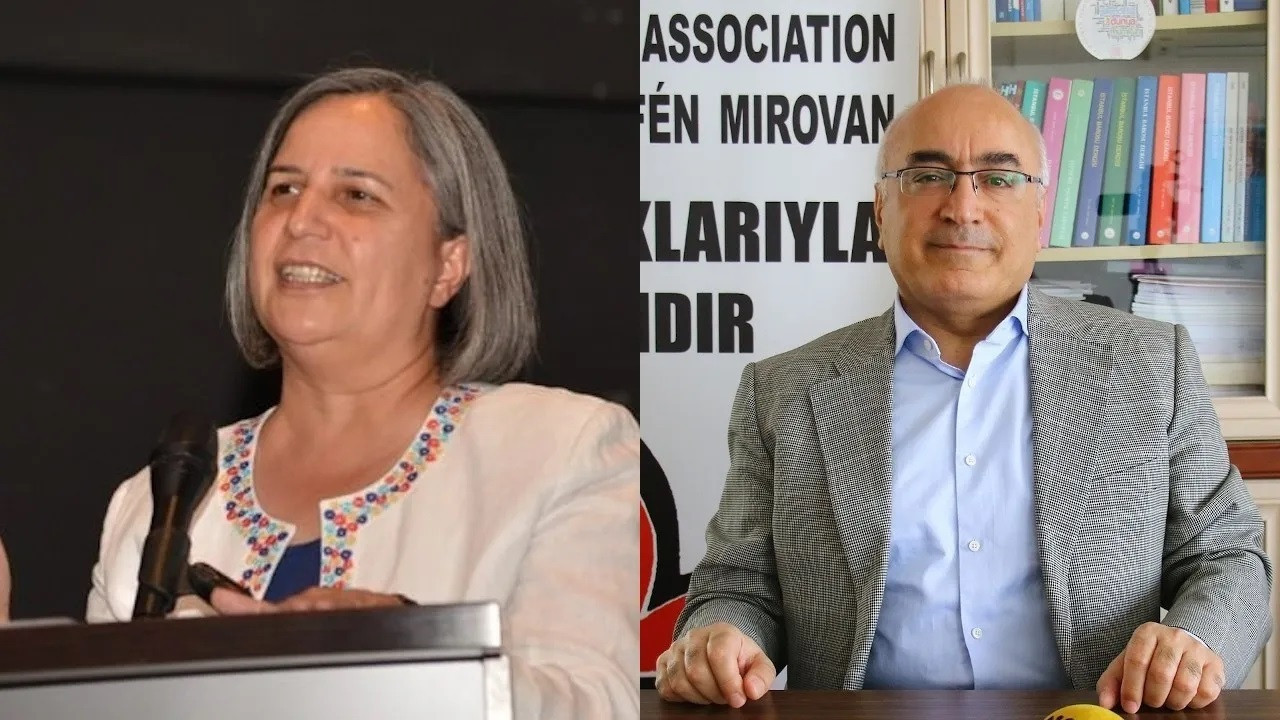 DEM Party names jailed Kışanak as Ankara mayoral candidatePolitics
DEM Party names jailed Kışanak as Ankara mayoral candidatePolitics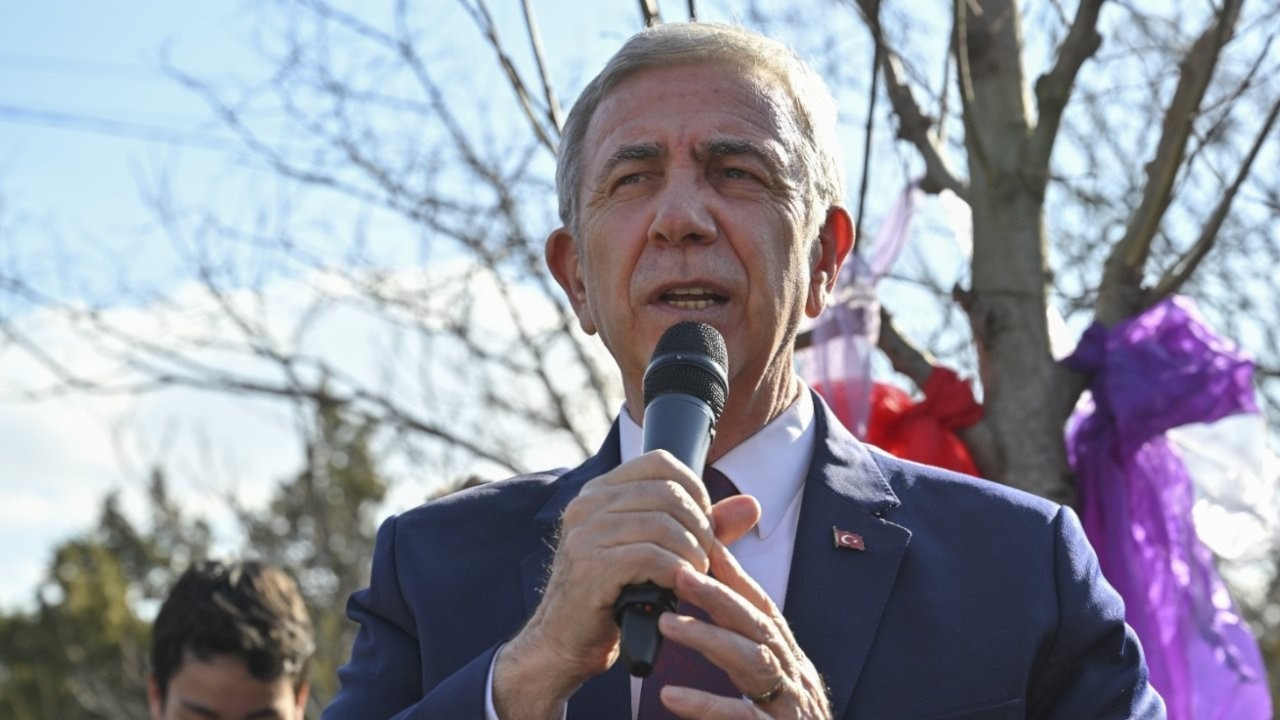 Ankara Mayor Yavaş says it will be his last term should he be re-electedPolitics
Ankara Mayor Yavaş says it will be his last term should he be re-electedPolitics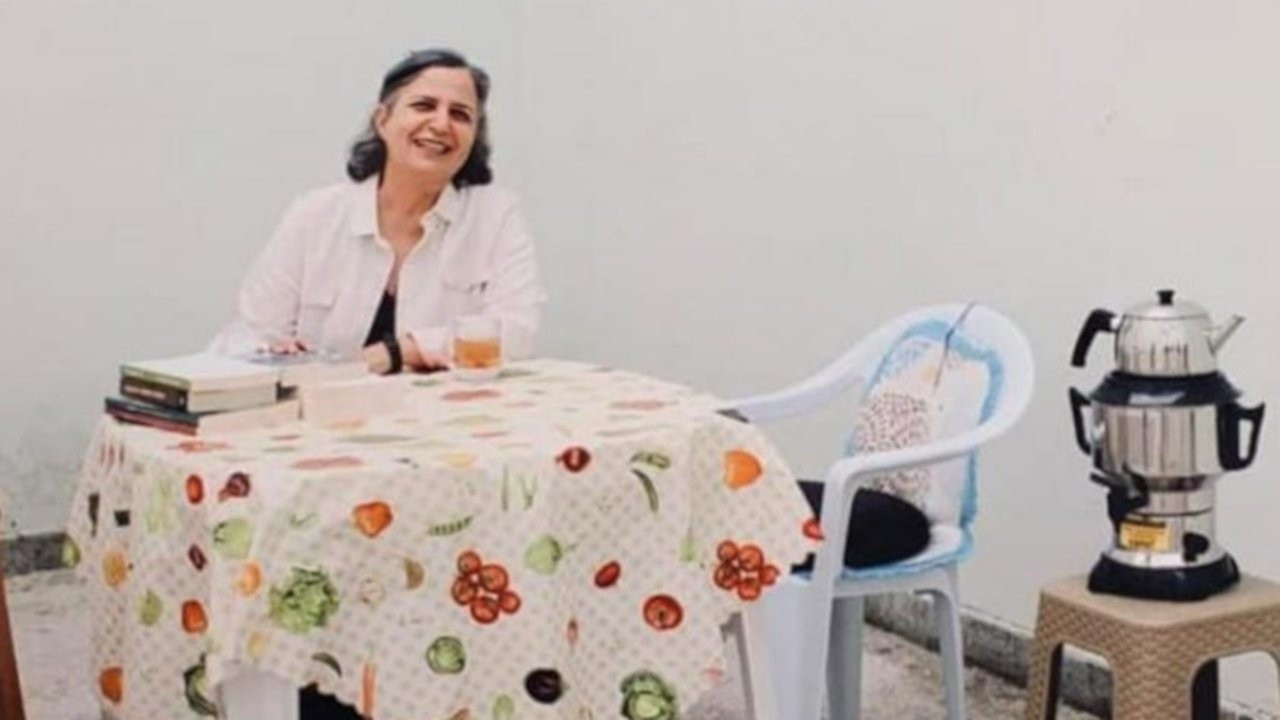 Kurdish politician Kışanak kept in prison for seven years without sentencePolitics
Kurdish politician Kışanak kept in prison for seven years without sentencePolitics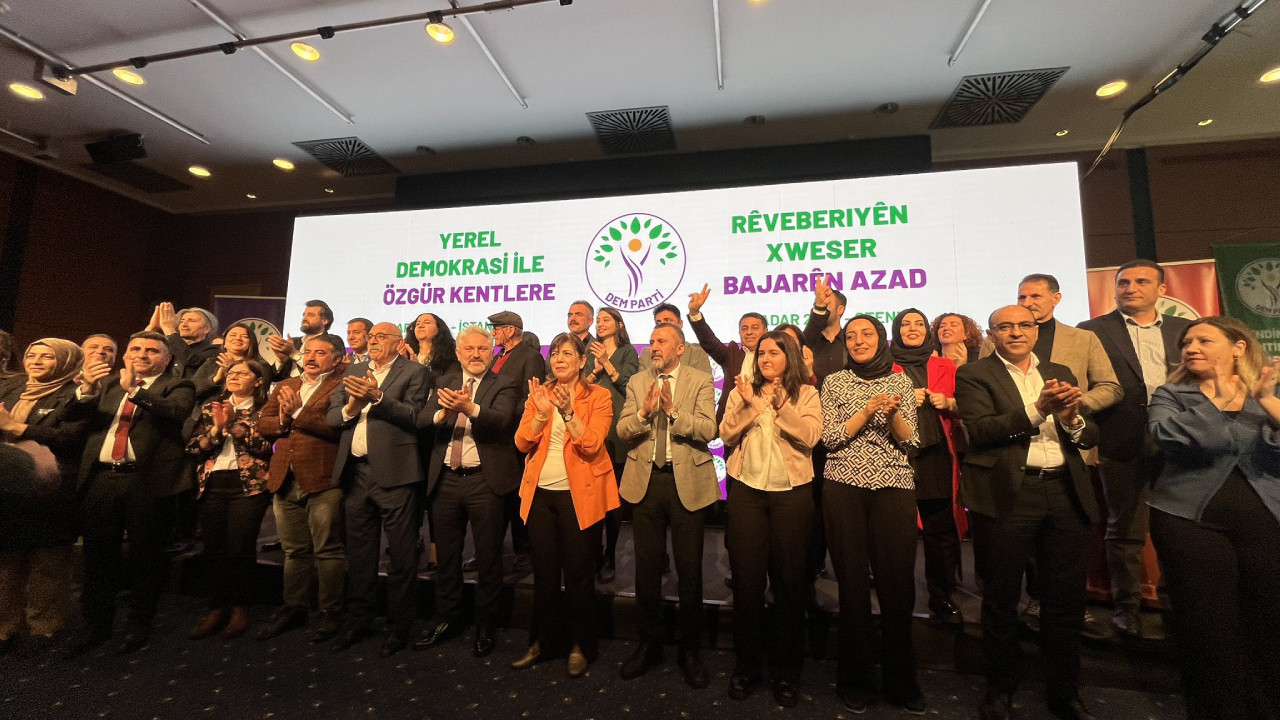 Turkey’s opposition DEM Party announces manifesto for Istanbul municipal electionPolitics
Turkey’s opposition DEM Party announces manifesto for Istanbul municipal electionPolitics